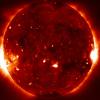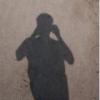Edited by MercuryAX, 06 April 2013 - 03:35 AM.

Piracetam non-responders
#421
Posted 06 April 2013 - 03:34 AM
#422
Posted 21 June 2013 - 02:29 PM
As many lurkers, I decided to start posting in this very thread after having performed the test.
No matter to say I am among the ones who confirm Acatelopope intuition by jointly experiencing a modest ocular fluctuation and mild effects from piracetam.
Up to now, I assumed 12 grams of Piracetam (Nootropil) spread on a period of 10 days and although I am far from the evident boost someone had reported, I feel slightly more confident about my recalling memory and fluency. Also, apart from a slight irritability on the very first day I did not experience side effects. No mental fog reported so far, even the day I took 4.8g without supplementing with a choline source.
I guess I mainly benefited from the increased oxygen afflux, as I feel more "reactive" even after a consistent lunch.
Now, let's come to my question: considering the striking mass of people complaining (which is possible much greater, net of placebo) is there someone who benefited from the 1\2 teaspoon intake so far?
kindest
A.
Edited by aghonia, 21 June 2013 - 02:30 PM.
#423
Posted 21 June 2013 - 04:54 PM
#424
Posted 07 July 2013 - 09:28 PM
tomorrow I am going to try with B-complex vitamins...
#425
Posted 25 July 2013 - 01:20 AM
Seems we are the last survives here.bang
tomorrow I am going to try with B-complex vitamins...
Please, share your results.
Cheers
#426
Posted 25 July 2013 - 07:37 AM
Up to now, I still don't notice any appreciable benefit from racetam drugs (pira, oxi, prami) but I will continue with piracetam in low dosages (1.2 - 2.4) as long as it is quite cheap. Considering that I had been rather foggy by taking 4.8 once, I believe that the lower dosage is my sweetspot, taking for granted that the function has only one maximum.
One major discover: I suspected for long time that vitamin B - complex has incredible nootropic effects, as it always put me in a deep focused condition while taking any complete multivit. I confirmed the suspect by trying "Becozym" for a while. Evidence comes after 20-25 minutes and the effect lasts for 5-6 hours.
Becozym composition:
tyiamine (B1) = 15mg
15 mg, riboflavine(Vit. B2)
15 mg, nicotinamide
50 mg, (Vit. B6)
10 mg, calcium
25 mg, cyanocobalamine
10 mg B12
biotine 150 mg.
As you can see, it is roughly 1000% RDA, but I obtain the same results with a normal 100% RDA b complex supplement.
Edited by aghonia, 25 July 2013 - 07:37 AM.
#427
Posted 30 November 2013 - 02:11 AM
I take no caffeine or alcohol.
The hidden dangers of caffeine: How coffee causes exhaustion, fatigue and addiction
"You probably don't drink as much coffee as I drank, but just one caffeinated drink – whether it's a soft drink, caffeinated tea or coffee – will put your body on the caffeine rollercoaster. When you consume caffeine, the drug begins its effects by initiating uncontrolled neuron firing in your brain, according to Stephen Cherniske in his book, Caffeine Blues. This excess neuron activity triggers your pituitary gland to secrete a hormone that tells your adrenal glands to produce adrenalin.
Adrenalin is what gives athletes that winning burst of energy and Good Samaritans the ability to rescue people by lifting cars. Adrenalin is also the source of our "fight-or-flight" response, which enabled our prehistoric ancestors to escape from saber-toothed tigers and other predators. By stimulating your adrenal glands to produce adrenalin, caffeine puts your body in this "fight-or-flight" state, which is useless while you're just sitting at your desk. When this adrenal high wears off later, you feel the drop in terms of fatigue, irritability, headache or confusion.
After prolonged "caffeinism," your body enters a state of adrenal exhaustion. Your caffeine consumption has simply pushed your adrenal glands so much that they've burned out. Ralph T. Golan, ND, describes this unfortunate state in his book, Herbal Defense: "Caffeine forces your glands to secrete when they don't have much left to give, and they have to keep digging deeper and deeper, making you more and more tired over time. And over the years, it takes more and more coffee to get the same result. Some people reach the point of drinking half a dozen or more cups of coffee to get the same result and it's barely keeping them awake. That's severe adrenal depletion."
Further Reading: Adrenal Insufficiency - The "Invisible Illness"
Caffeine Victim Testimony: TESTOSTERONE NATION: Stimulants, Stress, & Adrenal Exhaustion
The main cause of adrenal fatigue in our society is stimulant use, particularly caffeine.
I take no caffeine or alcohol.
The hidden dangers of caffeine: How coffee causes exhaustion, fatigue and addiction
"You probably don't drink as much coffee as I drank, but just one caffeinated drink – whether it's a soft drink, caffeinated tea or coffee – will put your body on the caffeine rollercoaster. When you consume caffeine, the drug begins its effects by initiating uncontrolled neuron firing in your brain, according to Stephen Cherniske in his book, Caffeine Blues. This excess neuron activity triggers your pituitary gland to secrete a hormone that tells your adrenal glands to produce adrenalin.
Adrenalin is what gives athletes that winning burst of energy and Good Samaritans the ability to rescue people by lifting cars. Adrenalin is also the source of our "fight-or-flight" response, which enabled our prehistoric ancestors to escape from saber-toothed tigers and other predators. By stimulating your adrenal glands to produce adrenalin, caffeine puts your body in this "fight-or-flight" state, which is useless while you're just sitting at your desk. When this adrenal high wears off later, you feel the drop in terms of fatigue, irritability, headache or confusion.
After prolonged "caffeinism," your body enters a state of adrenal exhaustion. Your caffeine consumption has simply pushed your adrenal glands so much that they've burned out. Ralph T. Golan, ND, describes this unfortunate state in his book, Herbal Defense: "Caffeine forces your glands to secrete when they don't have much left to give, and they have to keep digging deeper and deeper, making you more and more tired over time. And over the years, it takes more and more coffee to get the same result. Some people reach the point of drinking half a dozen or more cups of coffee to get the same result and it's barely keeping them awake. That's severe adrenal depletion."
Further Reading: Adrenal Insufficiency - The "Invisible Illness"
Caffeine Victim Testimony: TESTOSTERONE NATION: Stimulants, Stress, & Adrenal Exhaustion
#428
Posted 30 November 2013 - 03:11 AM
#429
Posted 30 November 2013 - 03:20 AM
There's tons more references - Google them.
#430
Posted 30 November 2013 - 03:25 AM
The adrenal glands produce various hormones that are responsible for coordinating and monitoring a variety of physiological activities. The adrenal glands produce cortisol, DHEA, estrogen, testosterone, and a number of other hormones that allow your body to function. For example, the adrenal glands control the level of cortisol so that the body knows when to be active and when to rest. There are times when certain things, such as caffeine, keep the cortisol levels high preventing the body from resting when it should and preventing the adrenal glands from operating as they would. The adrenal glands also produce adrenaline, the hormone that helps the body respond when danger is near. Adrenaline raises the heart rate and blood pressure and releases energy stores for physical strength and endurance. When in the system, caffeine can over stimulate the central nervous system and the adrenal glands to the point that the body is flooded with excess adrenaline and affected by an unnecessarily fast heart rate and blood pressure.
Over stimulating the adrenal glands can result in fatigue, insomnia, weight gain, depression, suppression of the immune system, moodiness, skin problems and muscle and bone loss. This is because while the cortisol produced by the adrenal glands is good in the short term, however if high levels are sustained in the body, the adrenal glands and the body itself become tired and weaken. People sometimes turn to caffeine to counteract the weakness and fatigue, however, caffeine only helps to exacerbate the situation as it keeps the cycle going. The demands of modern day society on their own exert of lot of pressure on the body and on the adrenal glands. These demands, coupled with those that caffeine places on the adrenal glands, can wear out the adrenal glands and lead to a constant state of exhaustion.
A study conducted in the 1980s examined the impact caffeine has on the adrenal glands - the study focused on epinephrine and norepinephrine, both of which are produced by the glands. Previous studies had shown that caffeine increases the production of these hormones. Many of the study participants revealed that while caffeine helped them to feel energized, it left them feeling moody and with disrupted sleep patterns. Both mood and sleep are affected by the activities of the adrenal glands, thus, the study proves that caffeine has adverse effects on the body.
Psychological Effects: Subjects apparently observed some differences in (1) energy (increase with caffeine); (2) sleep patterns (more difficult sleeping with caffeine); and (3) mood (more problems with caffeine). Eight of the eleven subjects observed some difference between the two weeks of caffeine and non-caffeine use. There was no obvious tolerance in the group who were regular caffeine users, although it would be difficult to document such effects in a panel of this small size. In a baseline survey conducted before the study, the researchers found that sixty-five percent of people who see a doctor because they are fatigued also consume three or more cups of coffee or tea a day.
These findings indicate that caffeine has adverse effects on the adrenal glands. As caffeine leads to long term exhaustion, it is important not to over stimulate them with caffeine.
Sanford B., Feldman M., Null G., Revici, E., Stumper L. "A pilot study of some physiological and psychological effects of caffeine" Journal of Orthomolecular Psychiatry , 13.1.1985:___.
Bolton S, Null G. Caffeine, "Psychological effects, use and abuse" Orthomolecular Psychology 10.2.1981:202-211.
Cheek T.R., Barry V.A., Berridge M.J., Missiaen L. "Bovine adrenal chromaffin cells contain an inositol 1,4,5-trisphosphate-insensitive but caffeine-sensitive Ca2+ store that can be regulated by intraluminal free Ca2+" Journal of Biochemistry 275.1991:697-701.
#431
Posted 30 November 2013 - 03:40 AM
"For most people, the amount of caffeine in two to four cups of coffee a day is not harmful. However, too much caffeine can make you restless, anxious, and irritable. It may also keep you from sleeping well and cause headaches, abnormal heart rhythms, or other problems. If you stop using caffeine, you could get withdrawal symptoms."
Source:
http://www.nlm.nih.g...s/caffeine.html
#432
Posted 30 November 2013 - 04:47 PM
#433
Posted 26 September 2014 - 03:37 AM
#434
Posted 24 February 2015 - 07:10 PM
Piracetam is not a wonder drug, more than a few people have contacted me complaining of the inconsistency of Piracetam...
For a while I just sent them to this thread (which is excellent and detailed), but a lot of them would be get confused by it's length and so I created this 16 minute, very consumable video trying to summarize what the most efficacious cofactors of Piracetam are... I welcome any (constructive) criticism on the Piracetam Protocol, I will update the video in a year...
Here's the Aldosterone relevant studies...
#435
Posted 27 February 2017 - 10:36 AM
I think I may have come across another Cofactor that can unlock Piracetam for the none responders...
Vinpocetine
The Examine.com article talk quiet a bit of how it work with the potassium channel
Vinpocetine has also been implicated in enhancing potassium current (low-threshold fast inactivating) in the 1-100µM range[44][45] whereas the slow activating channels are slightly suppressed[45] and calcium dependent potassium channels also suppressed;[46] overall potassium influx is inhibited with vinpocetine usage (76% at 30µM[47]). Potassium channel blockers are associated with memory enhancement (see the memory section on Agmatine for more information), so this is a possible mechanism underlying the supposed cognitive enhancing properties of vinpocetine despite the effects of this in vivo currently being unclear.
#436
Posted 19 March 2017 - 09:20 AM
i tried 800, 1600, 4-5-6-7-8-9 grams dosages and it didnt worked. im using original stuff.
i took 6 neuvitan tablets which contains 50mg octotiamine and ribovlafin
6 nootropil each one contains 800mg piracetam
it gave me 2 hours euphoria and it never happened again.
may be its only because of b1 . (sam ethnig happening with sulbutiamine sometimes)
piracetam is non effective shit. period. dont waste your time.
#437
Posted 21 March 2017 - 06:25 PM
i tried 800, 1600, 4-5-6-7-8-9 grams dosages and it didnt worked. im using original stuff.
i took 6 neuvitan tablets which contains 50mg octotiamine and ribovlafin
6 nootropil each one contains 800mg piracetam
it gave me 2 hours euphoria and it never happened again.
may be its only because of b1 . (sam ethnig happening with sulbutiamine sometimes)
piracetam is non effective shit. period. dont waste your time.
Nothing works for everyone. Simple as that. For me Piracetam works. Being using it occasionally about 4 years.
#438
Posted 12 May 2020 - 05:10 AM
CONTACT ME via PM and i will tell what i found.
#439
Posted 15 August 2021 - 01:48 PM
This is a great thread and also appears to be what I suffer from. Piracetam was great the first time, since then I ended up drinking too much caffeine in the form of sugar free energy drinks, and when trying Piracetam again, both with and without choline, it caused me anger and irritability.
FOR ME I agree with Isochroma (rip); it's caffeine. I also suffer anxiety, the dehabillitating kind that's always with you. It's been a week since I drank caffeine, (and monster drinks so a week without them) and the general anxiety is diminishing, I can leave the house now without having to take Aniracetam first, I sleep better, Ani makes me sleepy whereas before it just reduced anxiety. I'm sure 100-200mg of caffeine a day is just fine, and I think when I've been off it for 3 months I will probably stick to a single pill of ND Dynamax every other day (that stuff is amazing) because when I quit caffeine then go back to drinking it, it creeps up, next thing I know I'm having mild caffeine OD symptoms from accidentally having had 3 monster drinks and a double espresso by 9pm.. this is something I noticed happened every so often.
ND owner was kind enough to give me some advice; quit caffeine, take Phosphatidylserine, Ginseng, maybe ashwaghanda (this one never works for me, I have all 3 of them inc Shoden and they make me feel "off" though this could be DUE to adrenal problems). So far I've been taking Panamax Ginseng as I ordered a ton of it a few months ago being one of my favorite, ironically, caffeine replacement pick me ups. I have not ordered the Phosphatidylserine yet.
I do miss caffeine, it seemed to potentiate every other nootropic including Piracetam however only for a few hours, whilst causing anxiety and jitters (which I counterbalanced with l-theanine).
Interestingly I've had minimum withdrawals from caffeine, having had ~800mg a day+ for a 3 year period. Just fatigue, no headaches, no rebound anxiety. I feel more human and less machine.
I will report back.
#440
Posted 27 October 2025 - 10:38 AM
Hgh + Nootropil + Champix
4 user(s) are reading this topic
0 members, 4 guests, 0 anonymous users


















































